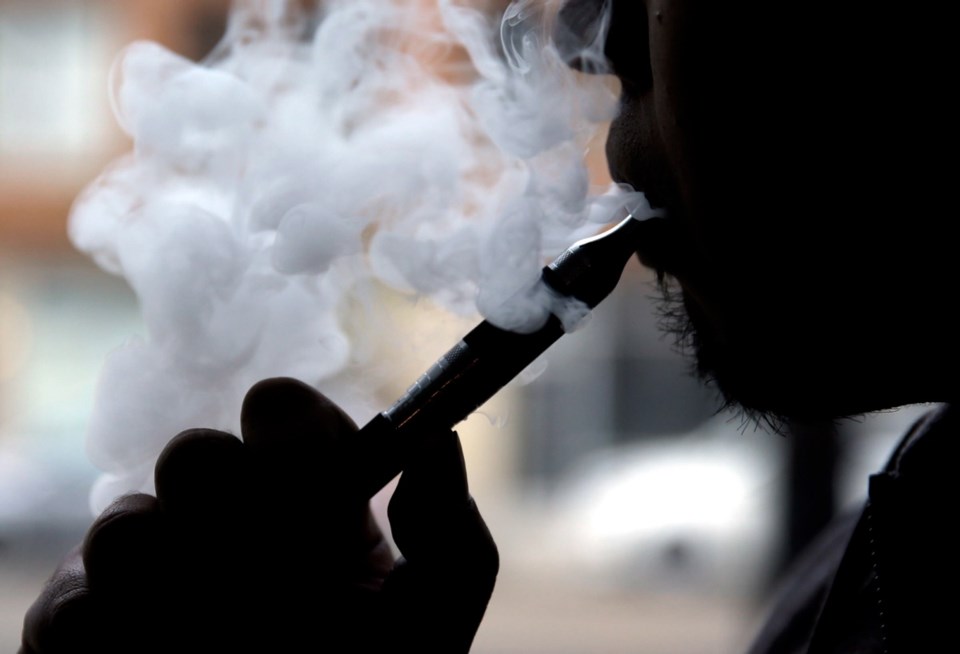The federal government has introduced the most sweeping changes to the Tobacco Act in a generation. Among the changes announced last week, the new regulations will apply many existing tobacco regulations to vaping products, restrict “lifestyle” advertising for vaping products, the use of testimonials or any reference to e-cigarettes as healthier than standard tobacco products, and give Health Canada the power to implement plain and standardized tobacco packaging.
Imperial Tobacco Canada president Jorge Araya and his colleagues must be disappointed. During a visit to Vancouver last summer — his third visit in 2017 — he said the industry wants to be able to advertise the lower health risks of the products, relative to cigarettes.
Tobacco manufacturers see vaping and e-cigarettes as the Next Big Thing and, Araya said, have been pushing to get government to adopt regulations to help sell products that allow consumers to use nicotine in ways the company says are safe. Imperial alone has invested $1.5 billion developing vaping and e-cigarette products.
The industry’s shift in product investment and marketing strategy began more than 10 years ago, according to an analysis of tobacco company Philip Morris’s previously secret, internal documents that was published May 1.
The study explores the company’s understanding of addiction before and after its public admission in 2000 of nicotine’s addictiveness. It reveals the company continued researching how substance-dependence occurs through the 2000s to develop successful and potentially safer nicotine products, and from the mid-1990s to 2006, its own addiction models rated psychological, social and environmental factors as important as nicotine in driving cigarette use.
The researchers say Philip Morris’s public acknowledgment of nicotine’s role in addiction allowed the company to strategically redirect policy away from proven social and environmental interventions and toward promotion of potentially less harmful products.
It must be noted that both Imperial and Philip Morris are named, with 11 other tobacco manufacturers, in a 20-year lawsuit by the B.C. government.
Grounds for the lawsuit, first launched in 1998, include allegations that the companies marketed “light” cigarettes as safer when they knew they were not, targeted children in their advertising and marketing, conspired to suppress research on the risks of smoking, and conspired to invalidate public warnings on the risks of smoking. The province also contends the companies are responsible for health-care costs associated with smoking.
Appeals and counter-appeals have dragged the case out and increased legal costs.
Canada’s Supreme Court is now considering a B.C. government appeal to a B.C. Court of Appeal ruling that granted Phillip Morris access to the raw data used by B.C. when it filed its second lawsuit against the tobacco companies. The B.C. court’s decision differs from an earlier New Brunswick ruling on a similar application by tobacco companies looking to access health-care information.
Even if the Supreme Court rules in B.C.’s favour — even if B.C. and the other provinces suing the big tobacco companies win — experience indicates the industry will keep fighting. For example, the industry aired the §rst U.S. court-ordered TV spots and newspaper ads outlining the addictive effects and health dangers of smoking last November — 11 years after the courts ordered the ads.
The companies admit they intend to keep fighting. In 2015, a Quebec Superior Court judge ruled that three tobacco companies — Imperial Tobacco, Rothmans Benson & Hedges and JTI-MacDonald — owed $15 billion in damages to Quebec smokers. The judgment required the companies to set aside $1 billion in trust immediately.
The companies appealed, arguing they didn’t have the funds, and that it could cause irreparable harm to their ability to appeal and even put them on the brink of bankruptcy. The Appeal Court judge ordered the companies to start paying the money in instalments instead.
In a statement issued at the time, Imperial vice-president Tamara Gitto said: “It is unjusti§ed to hold legal manufacturers responsible for the personal choices of adult consumers and it will continue to defend that position as its appeals proceed before the courts.”
In lawsuits against Big Tobacco, nothing proceeds quickly or smoothly.
The changes to the Tobacco Act will move much more quickly. The bill requires compliance with the new regulations within 180 days of receiving royal assent, and that is expected soon.



